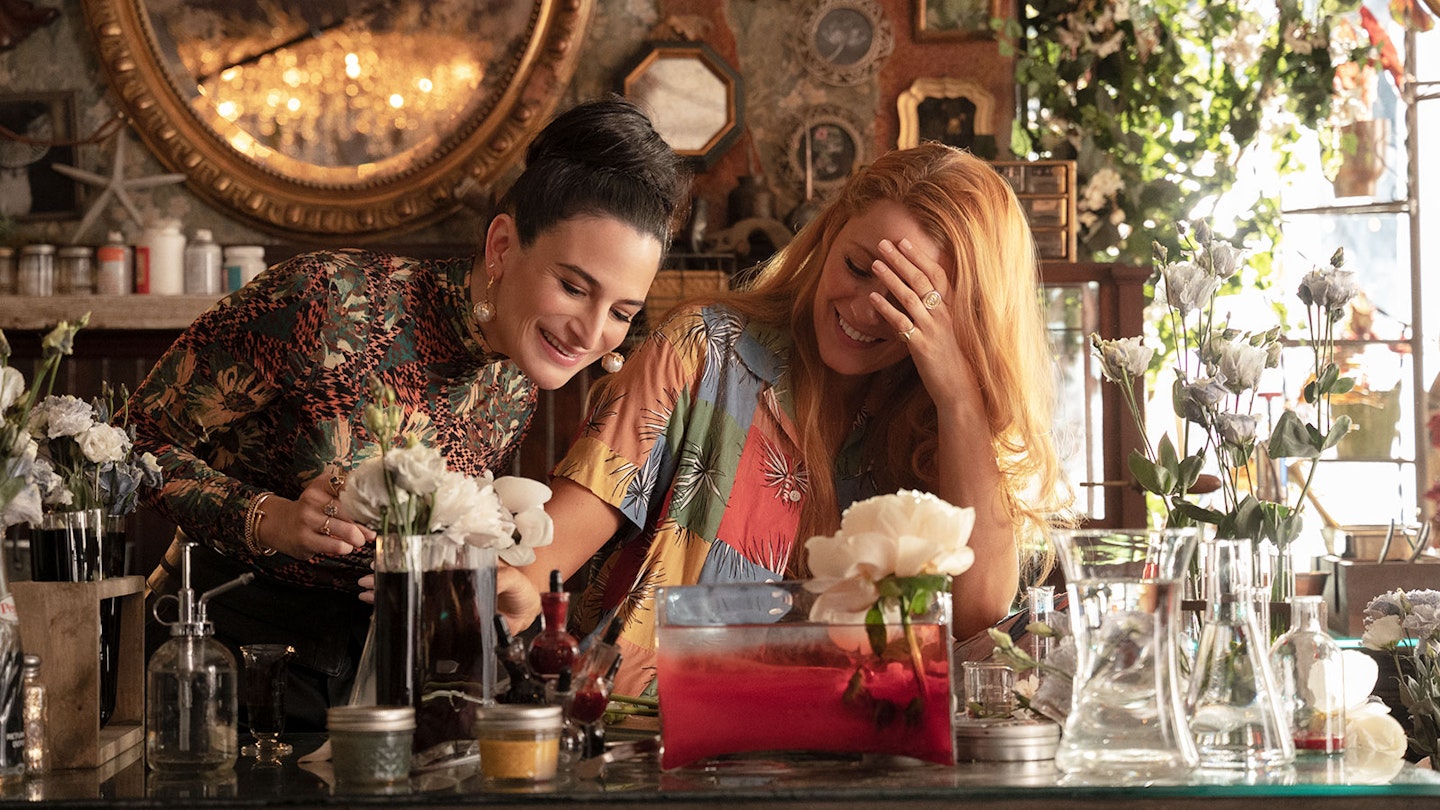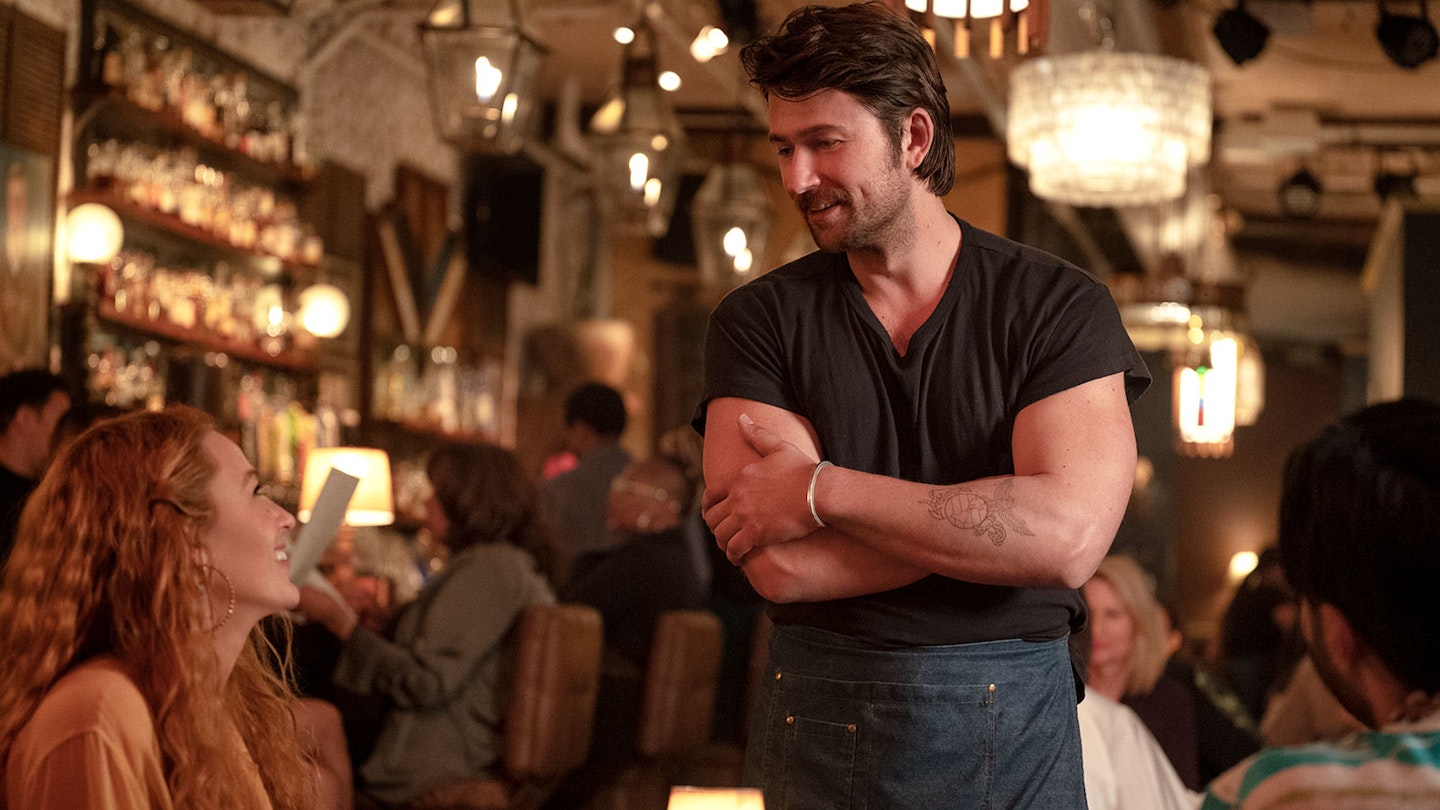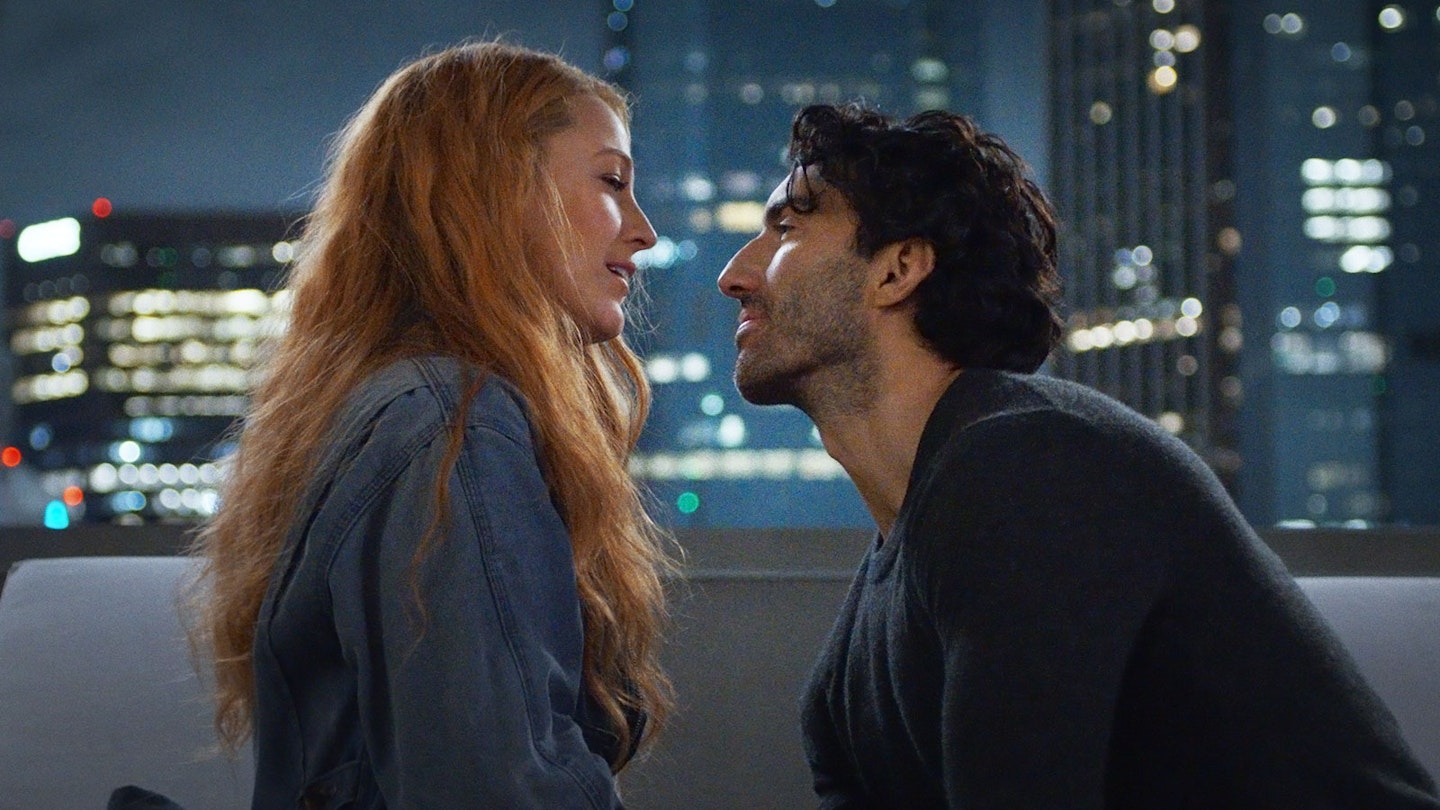Here is a film that, for many people, arrives with the burden of expectation. At over six million sales, It Ends With Us is among the most popular novels by author Colleen Hoover: romantic and emotional and traumatic, a proper page-turner of a beach read. Now it earns a film adaptation, one much-awaited by its built-in audience. Others might look on a little more suspiciously.

This is, after all, the kind of material that could so easily veer into Lifetime Movie-esque schmaltz. It does not always avoid those echoes. There is the overly glossy, sun-dappled direction from Justin Baldoni (who also stars); the over-obvious soundtrack choices (expect mournful ballads aplenty, including a syrupy piano cover of Bon Iver’s ‘Skinny Love’); some expensively aspirational kitchens straight out of a Nancy Meyers joint; and a soapy, soppy love triangle.
When the threat of violence for Lily does indeed begin to swell, the film goes to genuinely tense places.
But while It Ends With Us is not short on clichés, it manages to move beyond the usual expectations. Sure, there’s your bog-standard rooftop meet-cute between Blake Lively’s kookily dressed florist Lily Bloom and Baldoni’s hunky neurosurgeon Ryle Kincaid (both absurdly named characters) — but the pair share some real, intense chemistry, both actors wildly charming and charismatic when they need to be.

Lily and Ryle’s burgeoning relationship feels a little surface-level — what does she see in this guy, beyond his desperate love-bombing and obviously angular jawline? — but soon the narrative digs a little deeper, offering flashbacks to Lily’s first love with Brandon Sklenar’s Atlas Corrigan — another very silly name — along with her history of witnessing domestic violence, and her fear of the cycle of abuse continuing into her own relationships.
When the threat of violence for Lily does indeed begin to swell, the film goes to genuinely tense places. Lively is excellent in these moments, demonstrating what calculations women have to do to protect themselves when faced with potential threats. It’s dicey, distressing material, but the film handles it sensitively and without sensationalism, respecting its characters, even those causing harm.
There is a particularly well-played scene towards the end with Lily’s best friend Allysa, played by Jenny Slate — for the most part relegated to the comic-relief bezzie role — which emphasises solidarity and support and female friendship above all else. It’s sweet and surprisingly moving. So is this film. Readers of the book should be pleased.
